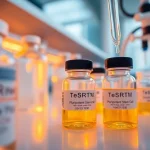Understanding Breast Cancer Recovery
Defining Breast Cancer Recovery
Breast cancer recovery encompasses a multifaceted spectrum of healing processes that patients undergo following their diagnosis and treatment. It’s not merely the absence of disease but an intricate balance of physical, emotional, and psychological dimensions. Recovery involves integrating the experiences of diagnosis, treatment, and life thereafter, aiming for a new normal that emphasizes vigor and well-being. A critical aspect of breast cancer recovery is understanding that treatment outcomes and personal journeys vary significantly among individuals.
Stages of Breast Cancer Recovery
Recovering from breast cancer can be categorized into several distinct stages, each representing different challenges and milestones:
- Initial Recovery: This stage follows primary treatment, which could include surgery, chemotherapy, or radiation. Patients often focus on physical healing, managing post-operative pain, and adjusting to changes in their body.
- Mental and Emotional Healing: As physical recovery progresses, many patients confront emotional fluctuations. Feelings of anxiety, sadness, or uncertainty about the future are common. Support from caregivers, counseling, or support groups becomes crucial during this phase.
- Long-term Health Monitoring: Once physical and emotional recovery stabilizes, long-term follow-ups become prominent. Regular monitoring aims to detect any signs of recurrence while addressing ongoing health aspects like nutrition and lifestyle adjustments.
- Reintegration into Daily Life: This final stage involves re-establishing routines that promote health and well-being. Many survivors find new hobbies and career paths, engage in social activities, and commit to a life focused on health preservation.
Psychological Aspects of Breast Cancer Recovery
The psychological journey of recovery significantly impacts a survivor’s quality of life. Various factors may influence this stage, including individual coping mechanisms, the availability of support systems, and the overall emotional landscape during treatment.
Understanding the complexity of fear associated with recurrence, many survivors benefit from psychological counseling that paves the way for healthy coping strategies. Mindfulness practices and cognitive behavioral therapy (CBT) are particularly effective. Studies have shown that patients who engage in psychological therapies report lower levels of stress and anxiety post-treatment, leading to improved overall recovery outcomes.
Navigating Treatment Options
Types of Treatments Available
Patients diagnosed with breast cancer encounter various treatment avenues, each designed to cater to specific cancer stages and types:
- Surgery: This is often the first line of treatment, focusing on removing cancerous tissues. Procedures may include lumpectomy, mastectomy, or lymph node removal.
- Chemotherapy: Often prescribed post-surgery, chemotherapy aims to destroy remaining cancer cells using cytotoxic drugs. This systemic treatment may cause various side effects, which patients need to manage carefully.
- Radiation Therapy: Typically used after surgery, radiation targets areas at risk for residual cancer, helping to minimize recurrence chances.
- Hormonal Therapies: For hormone-sensitive cancers, treatments that block hormones like estrogen can be effective in reducing the chances of disease progression.
- Targeted Therapies: These newer treatments attack specific cancer cells without harming normal cells, showing promise in targeted subtypes of breast cancer.
Complementary Therapies in Breast Cancer Recovery
In addition to conventional treatment methods, many survivors explore complementary therapies. These approaches may boost well-being and alleviate treatment side effects:
- Acupuncture: This traditional Chinese practice can help manage pain and reduce anxiety.
- Yoga and Tai Chi: Both are excellent for enhancing flexibility, fostering relaxation, and promoting mental clarity.
- Nutrition Therapy: Consultation with a nutritionist can help tailor diets that boost immunity and support recovery.
- Art and Music Therapy: Engaging in creative outlets can offer emotional expression and healing.
Role of Support Systems in Treatment Choices
Selecting treatment options is a personal and often overwhelming decision-making process. Patients benefit significantly from establishing strong support systems, including family, friends, healthcare professionals, and emotional support networks. Survivors who involve their support systems in discussions about their treatment are more likely to experience emotional resilience. Furthermore, access to educational resources enhances their ability to make informed decisions concerning their health.
Physical Rehabilitation Strategies
Importance of Exercise in Breast Cancer Recovery
Regular exercise stands as a cornerstone in breast cancer recovery, demonstrated by numerous studies indicating its multifaceted benefits:
- Enhancing physical endurance, which may be significantly affected by treatments like chemotherapy and radiation.
- Improving mental health outcomes by reducing symptoms of depression and anxiety.
- Contributing to a lower risk of recurrence and overall better long-term health.
Tailored exercise programs can assist women recovering from breast cancer. Incorporating activities that appeal to personal preferences enhances adherence, leading to better outcomes.
Nutritional Guidelines for Recovery
The connection between nutrition and recovery is profound. Adequate nutrition aids in healing, providing the necessary nutrients to support bodily functions:
Crucial dietary recommendations include:
- Emphasizing Whole Foods: Fresh fruits, vegetables, whole grains, and lean proteins should comprise the majority of the diet.
- Limiting Processed Foods: Reducing intake of high-sugar and high-fat processed foods is advisable.
- Prioritizing Hydration: Adequate water intake supports bodily functions and enhances recovery.
Consulting with a registered dietitian can provide personalized guidance tailored to individual dietary needs and preferences.
Managing Physical Side Effects
Physical side effects following breast cancer treatment can significantly impact quality of life. Common side effects include fatigue, lymphedema, and changes in body image.
Strategies for managing these issues can include:
- Regular communication with healthcare providers to address any concerns promptly.
- Incorporating rest and self-care into daily routines.
- Exploring therapies like physical therapy or occupational therapy to help manage lymphedema and promote recovery.
Emotional and Mental Health Support
Finding Professional Counseling Services
Emotional well-being is integral to breast cancer recovery. Professional counseling can furnish survivors with tools to navigate their unique challenges. Mental health professionals can assist in addressing feelings of fear, depression, and anxiety, which are commonly reported during and post-treatment.
Seeking a therapist experienced in oncology can be beneficial, as they are often knowledgeable about specific challenges faced by cancer survivors.
Support Groups and Community Resources
Support groups play an invaluable role in fostering connection among survivors. Sharing experiences with others who have endured similar journeys can mitigate feelings of isolation while offering practical insights and emotional relief.
Many communities and hospitals provide access to support groups, online forums, and local resources where survivors can connect, share stories, and offer mutual encouragement.
Mindfulness and Stress-Reduction Techniques
Practicing mindfulness can significantly enhance emotional health during recovery. Techniques such as meditation, deep breathing, and yoga promote relaxation and present-moment awareness, which can counteract stress and anxiety.
Incorporating a daily mindfulness practice can empower survivors to maintain focus on their emotional health, contributing to a sense of control during uncertain times.
Long-term Health and Surveillance
Monitoring for Recurrence after Breast Cancer Recovery
Post-treatment surveillance is vital in breast cancer recovery to ensure early detection of any potential recurrence. Follow-up appointments with oncologists typically include physical examinations and periodic imaging tests, depending on individual risk factors.
Patients are encouraged to maintain an active role in their health by recognizing warning signs and symptoms and communicating any changes to their healthcare team promptly.
Healthy Lifestyle Habits Moving Forward
Adopting a healthy lifestyle post-recovery enhances overall well-being and promotes longevity. Key habits include:
- Regular Exercise: Maintain an active lifestyle to promote physical health and mental clarity.
- Balanced Nutrition: Continuously prioritize whole, nutrient-dense foods.
- Avoiding Tobacco and Limiting Alcohol: These habits can increase the risk of various health issues, including cancer recurrence.
Empowering Yourself Through Education and Advocacy
Knowledge is power. Survivors who educate themselves about their specific cancer types, treatments, and recovery strategies can better advocate for their health. Engaging in local or online communities dedicated to cancer awareness can also empower survivors to share their stories and support ongoing research efforts.
By taking a proactive stance in their recovery, individuals can cultivate resilience and promote a holistic approach to their health and well-being.









